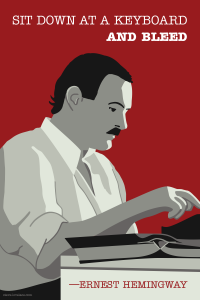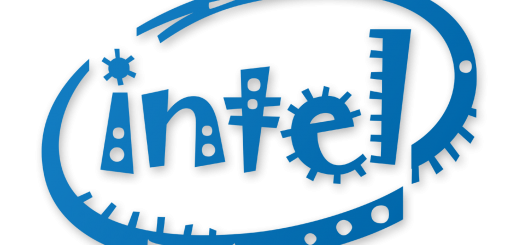“Mining the Iceberg” with Emotional Writing
 Every Saturday morning, I go down to the coffee shop to do some writing. It’s one of my favorite things to do. Now I’ve always loved going to the coffee shop, and I’ve always loved journaling. But a couple of years ago, I figured out a new method of writing that really works for me. I call this method emotional writing.
Every Saturday morning, I go down to the coffee shop to do some writing. It’s one of my favorite things to do. Now I’ve always loved going to the coffee shop, and I’ve always loved journaling. But a couple of years ago, I figured out a new method of writing that really works for me. I call this method emotional writing.
Getting Philosophical
I’ve been seeing a therapist since 2017. It’s been very helpful to me, both in terms of working through problems in my life and planning for the future. As someone who’s always been very introspective, I use journaling as a complement to therapy. I write down things are that going on in my life and then discuss the issues I can’t resolve with my therapist. I mostly do this of my own initiative, rather than as any “homework” assigned to me. But a couple of years ago, I encountered a problem with journaling. I was getting too philosophical.
I’ve only taken one college philosophy class, but I’ve always had an appreciation for “highfalutin” ideas. One of the reasons I started this blog back in 2011 was that I just wanted to write down and share some of the ides going through my brain. But a good blog post does not make a good journal entry, and vice versa. When I brought this up with my therapist, she told me to try “turning off” the part of my brain that catches grammar and typos. I tried this, and while it took some practice, I came up with the idea of “emotional writing.”
Turning off Spell Check
I’ve always been a good speller, though I was never very good at spelling bees. And while I certainly make plenty of typos, I’m also a big Grammar Nerd. I’m certainly no Grammar Nazi, as I don’t care if other people use the right words. But in my own writing, I want to write as clearly and concisely as possible. When it comes to my day-to day work, this is a great skill to have, but it was also keeping me from getting in touch with my feelings, so I had to learn to separate my inner grammarian from my inner thoughts and feelings.
I’ve mentioned before that the whole left brain/right brain dichotomy is a myth, but there are parts of our brains that are more rational and parts that are more emotional. Moreover, the rational parts of the human brain are tied to our language centers. There is no oral or written language without rational thought. This means that my emotional writing will never be purely emotional. But by resisting the urge to fix spelling mistakes and typos, I can keep my rational brain from completely co-opting the narrative.
Keyboard Mashing
A quote often apocryphally attributed to Ernest Hemingway says, “There is nothing to writing. All you do is sit down at a typewriter and bleed.” This is my method for writing as well, and since I have a word processor instead of typewriter, it’s easier for me go back and fix my mistakes. And boy do I make mistakes. I’m actually a halfway decent touch-typist, and when I get into the “zone,” I just sit at my laptop and mash the keys down as quickly as possible. A lot of times I don’t even look at the screen or the keyboard. Instead I have a tendency to look up or look around. I’ve actually had people come up to me at the coffee shop and ask how I can write without looking at my computer. I tell them the answer is simple. Writing is easy when you don’t care about making mistakes.
The downside of this method is that the result is 90% gibberish. That’s why I turn off the spell checker. I don’t spend a lot of time looking at the screen when I’m writing, but I also don’t want to be distracted by the fact that every word has a red underline. But I do turn the spell check back on when I’m done. Usually I go to the coffee shop, beat my keyboard half to death, then go home and “translate it into English.” This is the big downside of this writing method. Because it takes just as long to rewrite the whole thing, emotional writing is not much of a time-saver. I don’t use it for business writing and correspondence, though I am using it for the rough draft of this article. We’ll see how that turns out.
Mining the Iceberg
Overall, I find emotional writing to be a useful tool for introspection. the goal is what I call “mining the iceberg.” If you view human consciousness as an iceberg, with 90% of it below the surface, my goal is to tap into some of my subconscious thoughts and write them down on the page. Then, when I’m editing the journal entry, I can read my thoughts and make the subconscious thoughts conscious. This is the method that I use to better get in touch with my innermost feelings and desires.
I’m certainly no psychologist, and I’m not going to recommend that everyone go out and do some emotional writing, but it is a method that has worked well for me. I will say that it really take some practice, especially if you’re a stickler for spelling. But if you have a computer and want to give it a try, I certainly don’t think there’s any harm in it. The worst thing that can happen is that you’ll end up with a page full of random numbers and letters.
Do you have a preferred method of journaling? Have you ever done anything like emotional writing? Let me know your thoughts in the comments.








2 Responses
[…] increasingly stressful, meditation and journaling have helped me get by in uncertain times. In my writing and meditations, I try to make sure that these two facets of my brain are on the same page. While I’ve had my […]
[…] with distractions because the distractions help keep my focus away from the mundane process of pounding my fingers against a bunch of plastic keys, so that I can focus on the writing process as a […]